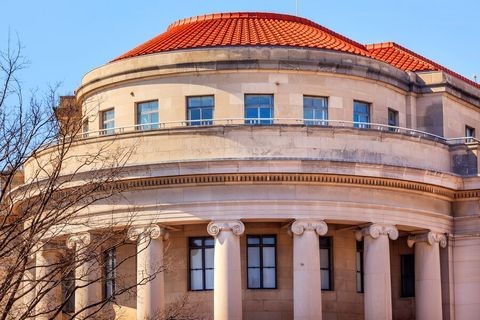Biden Executive Order on Competition Includes Recommended Action on Internet Platform Industries and Privacy
Client Alert | 2 min read | 07.13.21
On Friday, President Biden signed the Executive Order on Promoting Competition in the American Economy (“Executive Order”). The Executive Order includes 72 initiatives by more than a dozen federal agencies to address perceived competition issues across the economy, and establishes a White House Competition Council to monitor progress on facilitating and implementing these initiatives. The Executive Order announces a policy of increased antitrust enforcement -- “especially as these issues arise” in labor markets, agricultural markets, Internet platform industries, healthcare markets, repair markets, and U.S. markets directly affected by foreign cartel activity.
With respect to what are labelled “Internet platform industries,” the Executive Order focuses not only on competition, but also on consumer protection and privacy in three important respects:
- First, the Executive Order encourages the Federal Trade Commission (“FTC”) to exercise its statutory rulemaking authority, as appropriate and consistent with applicable law, to establish rules on “unfair data collection and surveillance practices that may damage competition, consumer autonomy, and consumer privacy.”
According to the Executive Order Fact Sheet, “[m]any of the large platforms’ business models have depended on the accumulation of extraordinary amounts of sensitive personal information and related data.” The Executive Order’s use of the terms “platform” and “surveillance”, however, are not defined.
- Second, the Executive Order encourages the FTC to establish rules barring “unfair competition in major Internet marketplaces.”
The Executive Order Fact Sheet calls out specifically the example of use of consumer data received through third parties. It maintains that companies that run online retail marketplaces “can see how small businesses’ products sell and then use the data to launch their own competing products.”
- Third, the Executive Order announces an Administration policy of greater scrutiny of mergers, especially by “dominant Internet platforms,” with particular attention to the effect on “the aggregation of data” and “the surveillance of users”, among other areas.
Historically, the FTC has issued both business guidance and brought enforcement actions that resulted in consent orders that address best practices for the collection and use of consumer data under Section 5 of the FTC Act. Rulemaking in this area is typically reserved for data collection and use in specific sectors, such as lending or employment or to protect children’s privacy and pursuant to specific statutory authority.
The Executive Order and its call for FTC rulemaking on “unfair data collection and surveillance practices” and “unfair competition in major Internet marketplaces” more generally portends significant changes. Crowell & Moring will continue to monitor closely as the FTC staff begins to develop and roll out specific proposals to implement this broad mandate.
The Commission’s authority for issuing rules with respect to unfair or deceptive acts or practices under the FTC Act arises under Section 18 of the FTC Act, 15 U.S.C. Sec. 57a. If the FTC takes action, a lengthy process would likely ensue under Section 18, including notice of proposed rulemaking and public comment to develop the final rule(s), timeline for enforcement, and any remedies or civil penalties the FTC could pursue. The FTC, however, adopted amendments to its Section 18 related rules on July 1 that are designed to expedite the process.
Contacts
Insights
Client Alert | 11 min read | 05.17.24
FTC Finalizes Modifications to Broaden the Applicability of the Health Breach Notification Rule
On April 26, 2024, the Federal Trade Commission (“FTC”) announced a final rule (“Final Rule”) modifying the Health Breach Notification Rule (“HBNR”). The Final Rule, which largely finalizes changes proposed in a Notice of Proposed Rulemaking published last year (“2023 NPRM”), broadens the scope of entities subject to the HBNR, including many mobile health applications (“apps”) and similar technologies, and clarifies that breaches subject to the HBNR include not only cybersecurity intrusions but also unauthorized disclosures, even those that are voluntary. The Final Rule will take effect 60 days after its publication in the Federal Register.
Client Alert | 5 min read | 05.16.24
CMS Finalizes Contested Rule on Nursing Home Staffing and Facility Assessments
Client Alert | 3 min read | 05.15.24
Client Alert | 3 min read | 05.14.24





